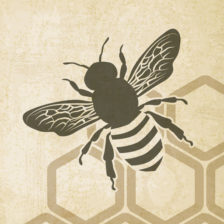The July 21, 2015 issue of The Apis Newsletter has been published, featuring a discussion of several academic programs that are recently in the news.
The first Florida Bee Research Symposium was held last week in scenic Austin Cary Forest, just outside of Gainesville, FL under the auspices of the Honey Bee Research and Extension Laboratory (HBREL). The proceedings are now available. There were two days of activity, the first emphasizing non-Apis bees. I was only able to attend the second day on Apis mellifera. There was plenty to absorb on that topic, however, including information on the increasing number of beekeepers in the state and how this is affecting Florida bee inspection , and the role of the Bee Informed Partnership with its associated technical transferteams. Other information included Africanized honey bees in the state (morphometric identification), genetic diversity in honey bees, an updateddiagnostics key to colony health, Varroa destructor in South Africa, and the influence of Florida’s Master Beekeeper Program on the wider apicultural community.
The HBREL also publishes something called the Melitto Files and sponsors three separate beekeeping education activities (bee colleges) each year. One is an international event in the Caribbean. All these activities, plus an extensive research program is straining the current laboratory’s resources. As a consequence for two (2) years running an initiative to upgrade the facilities led by the Florida State Beekeepers Association to, “Build the Bee Lab” has mustered legislative support, but state funding proposed by that body has been vetoed at the 12th hour by the Governor.
Several other state apicultural programs have come to my attention. In Colorado, a consortium of organizations, both state and local has produced something called “Integrated Hive Management for Colorado Beekeepers.” This presents honey bee management in a flexible way, “allowing beekeepers to customize their programs to achieve optimal results.”
Mississippi State University’s new extension apiculturist, Jeff Harris, is a catalyst for education about pesticides and honey bees, Mississippi’s Bee Aware Program concerning pesticide exposure, and the increasing effects of Varroa miteson honey bee health in the Mississippi delta.
With the retirement of Dr. Eric Mussen in California, it’s worth looking at how Dr. Elina Lastro Nino carries on his legacy by continuing to publish “From the UC Apiaries.” Check out her Varroa management strategy in the latest issue.


